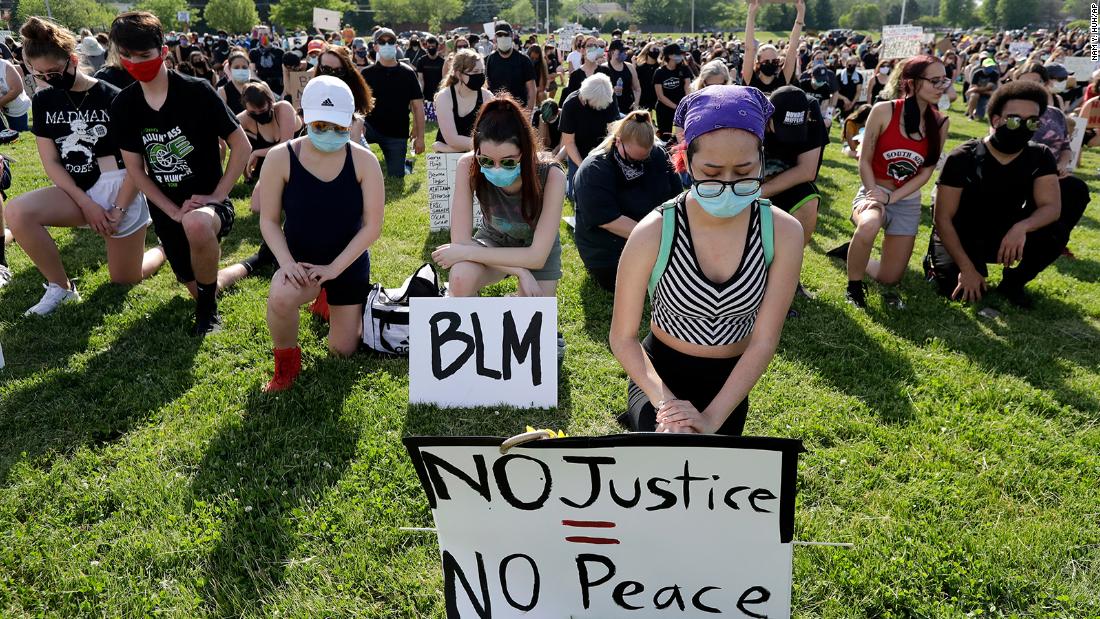[ad_1]
It may be mind-boggling to think that that was once a controversial phrase. But it was, just two weeks ago.
I told my son that I thought technology made a difference; now that there are cell phone videos of African Americans being senselessly killed by the police, more white people seem to believe it happens. People around the world have watched the graphic video that showed a white police officer kneeling on Floyd’s neck as Floyd said, “I can’t breathe.” Millions witnessed his body going limp as bystanders urged the police to stop pinning Floyd to the ground.
These devastating losses came off the back of a global pandemic, which disproportionally took black lives. African Americans and other marginalized communities suffer disproportionately from the health conditions that can make a Covid-19 diagnosis fatal and from longtime inequities in healthcare. George Floyd was also one of millions of people who lost their jobs in the economic upheaval caused by the virus.
And that is the debate among African Americans: is this a paroxysm of outrage that will fade like so many social trends before it? Or is it really possible that we could be living through a moment of fundamental societal change?
I’m reminded of South Africa in the years leading up to Nelson Mandela’s release from prison in 1990 after serving 27 years. I also see glimmers of the American Civil Rights Movement in the 1960s. The abuse of African Americans in the South and the outrage over it led to real change, including the end of Jim Crow and the disenfranchisement of black people, along with the extension of the rule of law to include all Americans.
But the mistreatment and murder of black people had been going on for nearly 200 years of American democracy and centuries before independence. What changed during the Civil Rights Movement was white people’s tolerance of this mistreatment. It was white outrage that led to change.
The changes in South Africa and the American South required a change of heart in white people. This new fight against racism will require the support of white people too. If our eyes and ears are to be believed, many are now stepping up to the plate and demanding it of themselves and their neighbors.
Will that demand for change be enduring? Will it sweep away inequities from the classroom to the boardroom to the newsroom?
The first time I told my twins the story of how the United States became a nation, they were five years old. As the three of us sat in a New York playground, I cried as I told them about a rabble of farmers and workers who took on the greatest empire in the world and, against all odds, won.
Years later, I told them the story of slavery. Later still I told them about Jim Crow. They know all that now. The son I was talking to about George Floyd had just finished a fifth-grade paper on the rule of law through US history. He had chosen as his topic sentence: “The rule of law, or equality before the law, is a part of our society; however it is a lie.” He handed in his final draft on May 28, three days after George Floyd had died.
But change does come. History teaches us that. It came to South Africa. It came to the American South.
Is this our moment? Dare we believe it?
[ad_2]
Source link




